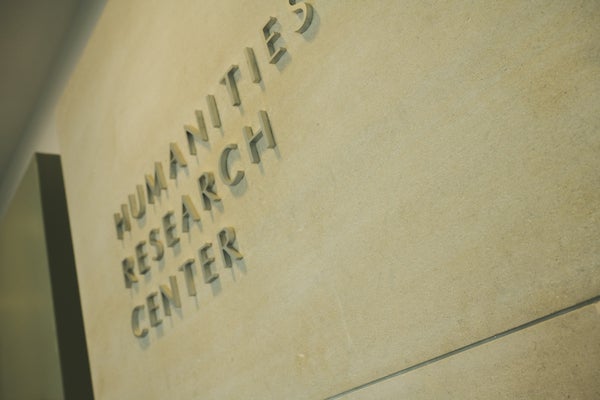
The Humanities Research Center (HRC) at Rice University serves as an incubator and hub for cutting-edge research, cross-disciplinary collaboration and community, and innovative programming and pedagogy in the humanities and arts. Created in 1987 as the Center for the Study of Cultures, the HRC is steered by a Director and Associate Director working in close collaboration with a faculty council composed of faculty from across Rice’s School of Humanities.
The HRC aims to shape and support research and engagement practices that are locally rooted and globally linked. The HRC supports both disciplinary and interdisciplinary research initiatives in the humanities and arts and invites engagement from faculty and students across and beyond the School of Humanities. HRC programming is guided in part by a capaciously formulated biannual theme, intended as a spark for collaborative programming and research. The theme for 2026-28 is Critical Futures.
The HRC seeks to advance graduate education and postdoctoral community beyond disciplinary bounds through seminars, workshops, and research collaborations. In Fall 2023, the HRC initiated the school’s first interdisciplinary introductory graduate course for first-year PhD students entitled “The Humanities Beyond the Disciplines.” The HRC also provides shared office space in Lovett Hall and organizes workshops, events, and works-in-progress presentations for Rice postdoctoral associates working in the humanities and arts. In addition, the HRC awards annual fellowships to support advanced undergraduate research projects in the arts and humanities.
The HRC aspires to raise the visibility and impact of Rice University scholarship and public engagement in key areas of humanistic and artistic inquiry. The Center is an active member of the Consortium of Humanities Centers and Institutes (CHCI), connecting Rice to national and global humanities conversations.
Across all its efforts, the HRC is motivated by a commitment to the central role of humanities and arts research in confronting the multiple challenges—cultural, environmental, political, technological—that increasingly characterize twenty-first-century life.
